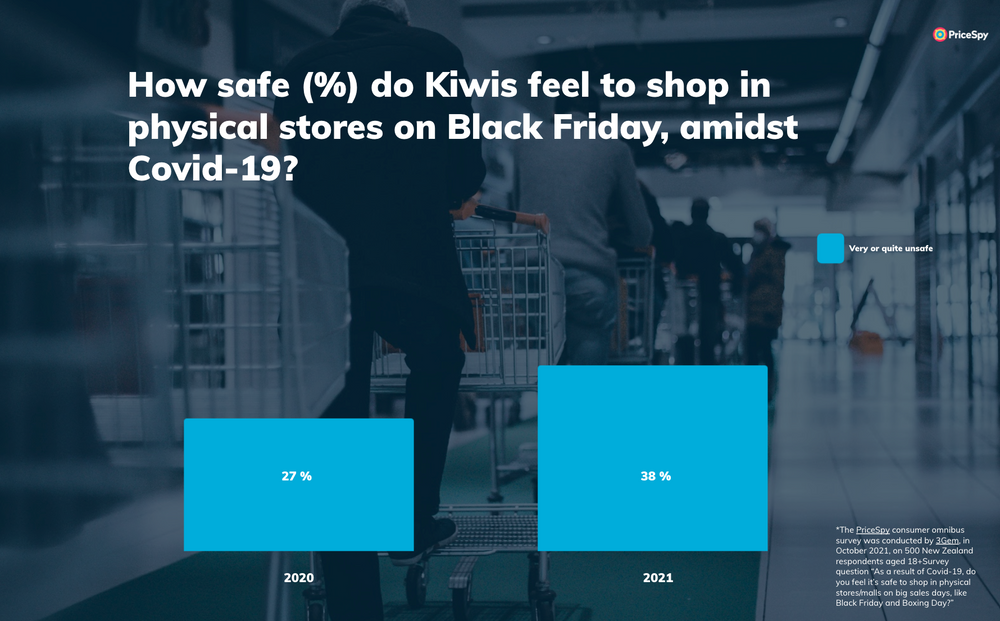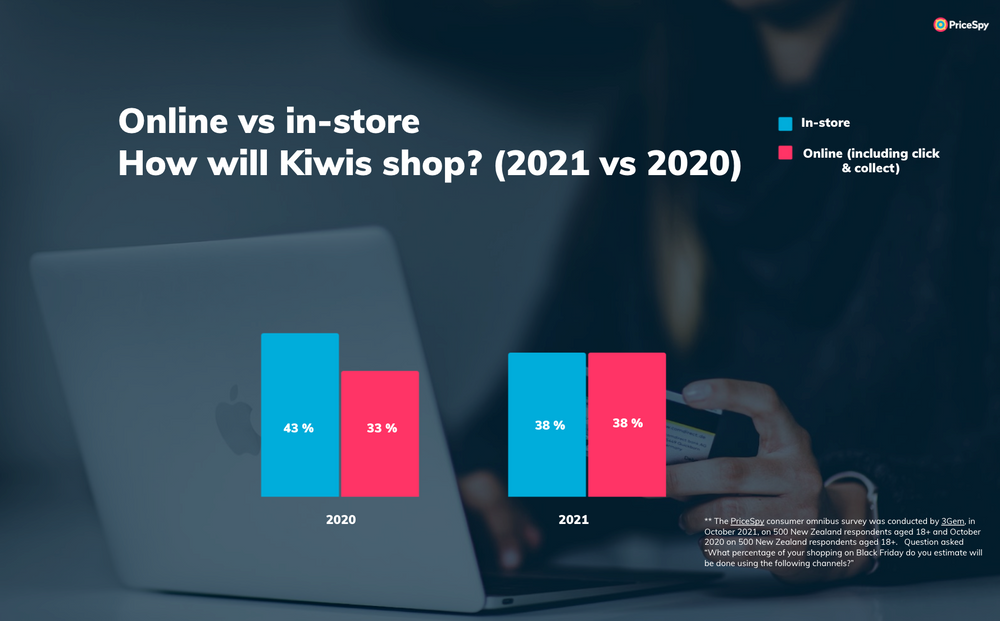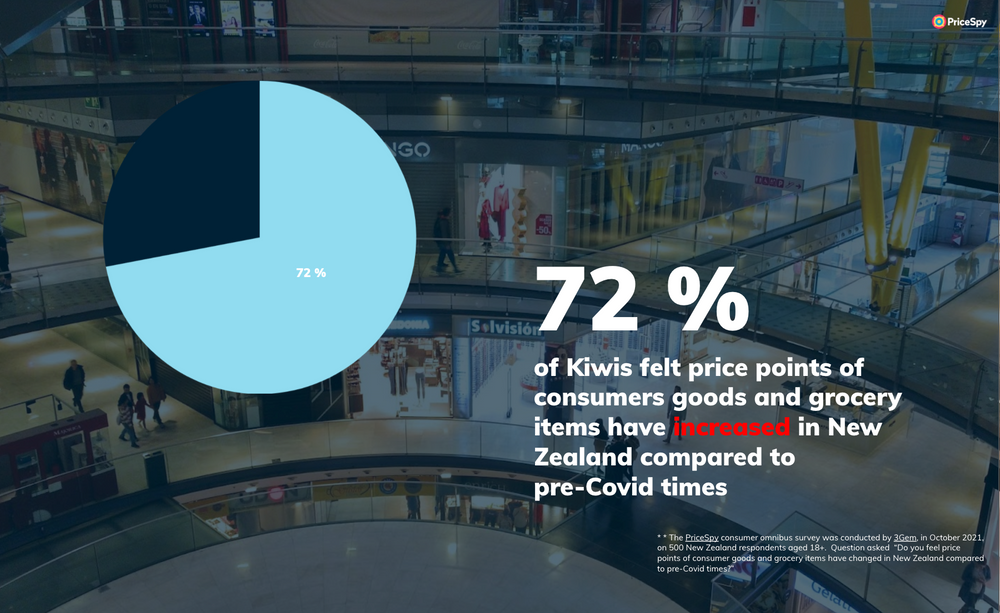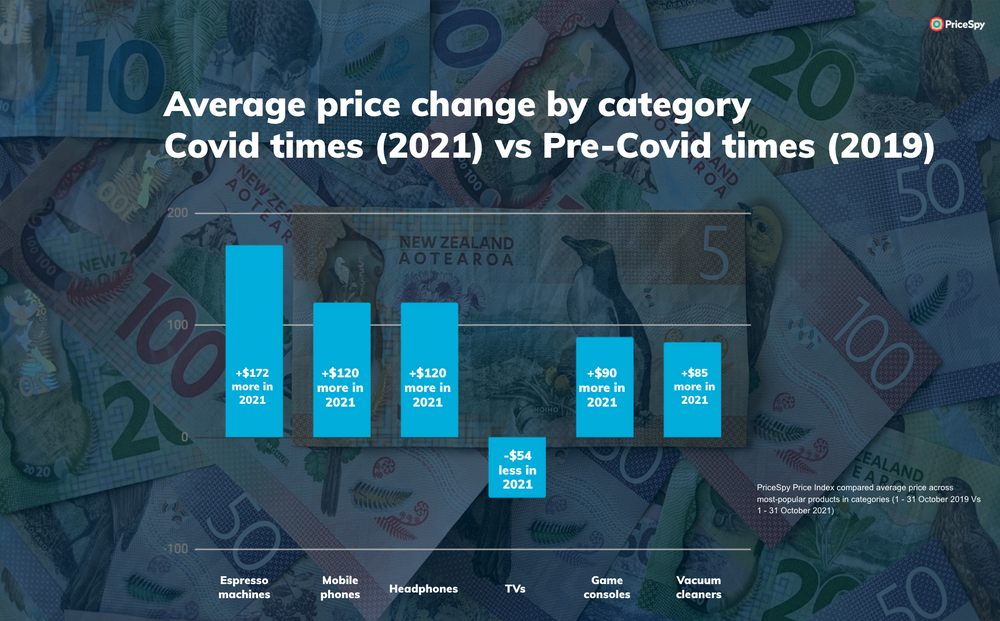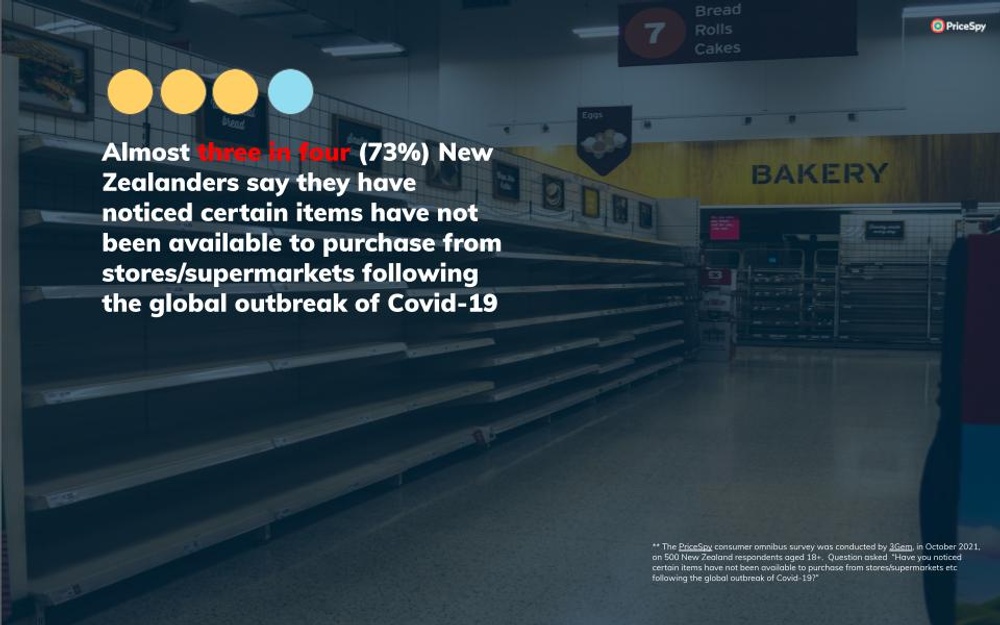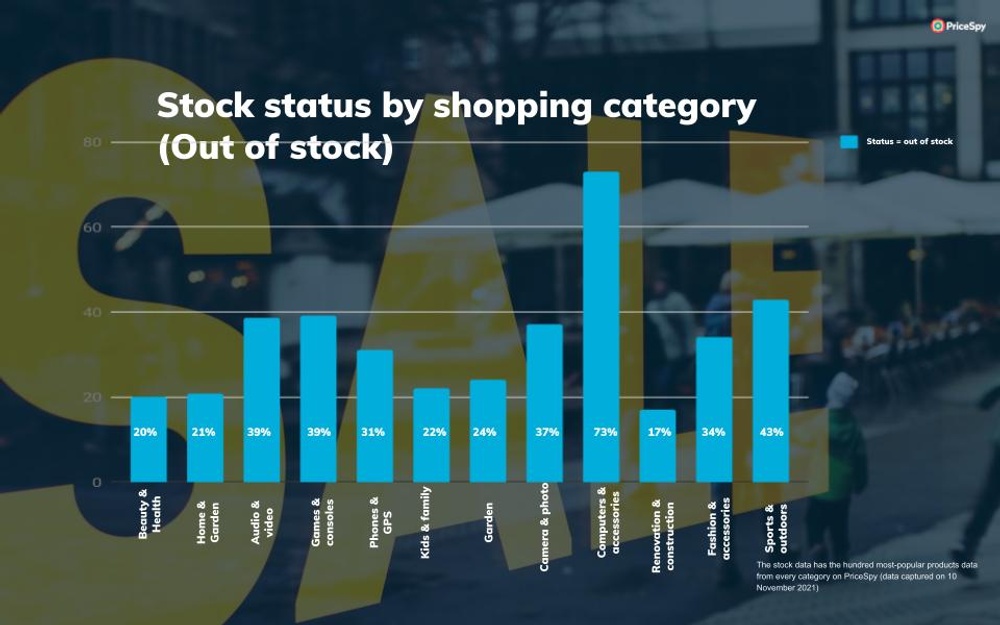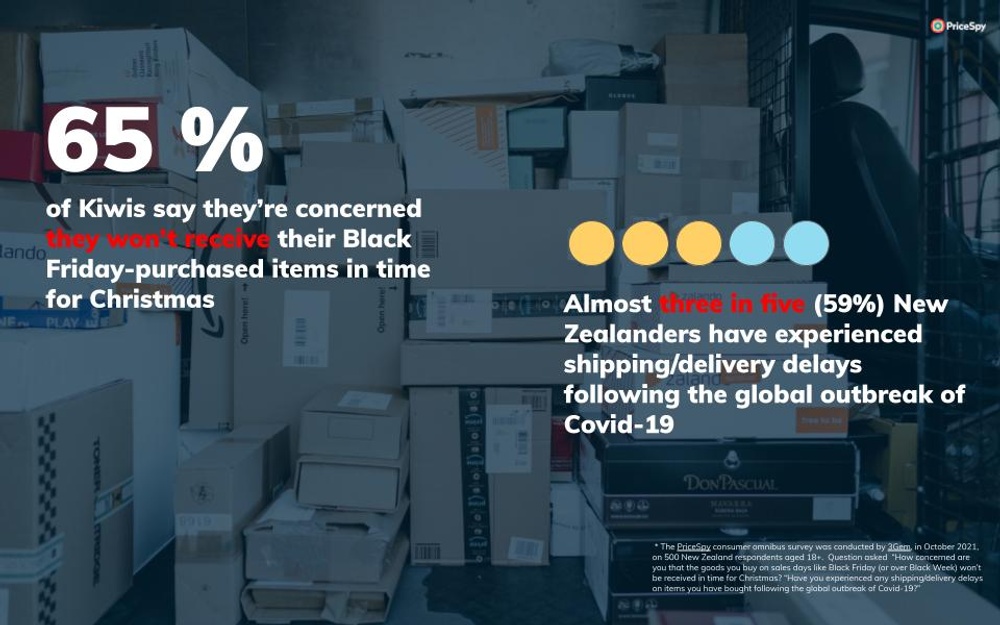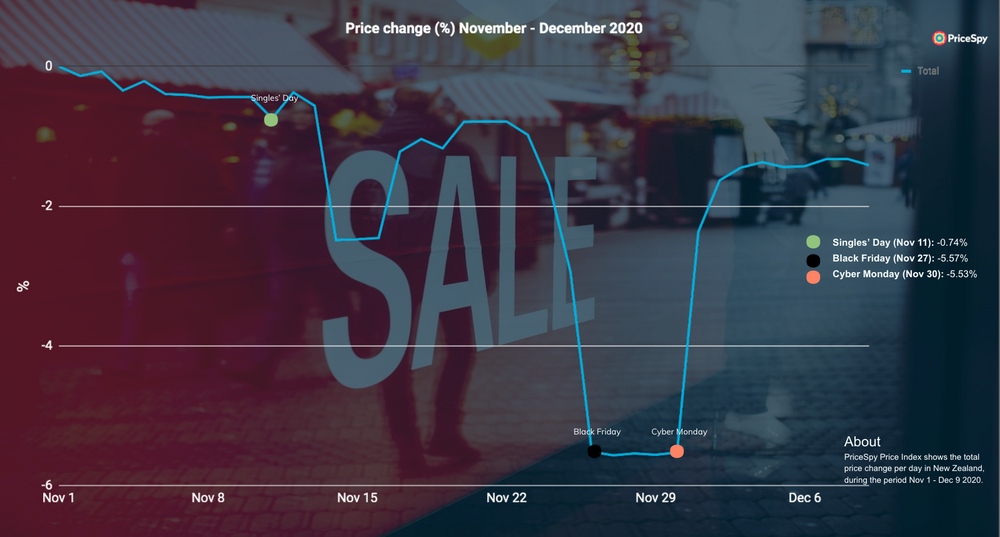PriceSpy - Black Friday and Covid-19 Report 2021

Black Friday and Covid-19 - What are the wider impacts?
This is no ordinary year!
We’ve already established that more Kiwis than ever before (65 per cent) plan to shop during Black Friday and Black Week this year - and that people will be spending more money than ever too (up 68 per cent on last year). It’s likely these factors are partly down to Covid-19, but how else might the global pandemic affect shopping habits? Do people intend to spend in-store? Or with growing numbers of Covid-19 in the community, will they prefer to stay at home while they shop?
Do Kiwis feel it’s safe to shop in a physical store?
When we asked if, as a result of Covid-19, people felt safe to shop in physical stores/malls on big sales days like Black Friday, almost two fifths (38 per cent) said ‘no’.
Unsurprisingly, safety appears to be a growing concern amongst Kiwis, as when survey respondents were asked the same question last year, only 27 per cent felt it was unsafe, highlighting a marked increase of +11 per cent year-on-year, reflecting New Zealand’s growing battle with the virus.
These latest findings suggest safety when shopping is of growing importance amongst Kiwis this year, perhaps because of the current situation and rising cases of Covid in the community.
Last year, unlike much of the rest of the world, New Zealand wasn’t in lockdown, but it’s looking likely that shopping restrictions and social distance requirements will be in place for 2021, which may affect how people shop for Black Friday and Black Week.
So, rather than stampedes of people rushing through the doors of stores and huge queues lining up at the tills, people may choose to shop more cautiously.
Growth of online shopping – a Covid-19 fad?
Interestingly, despite Black Friday traditionally being an online shopping day, for the last three consecutive years (from 2017 to 2020), New Zealand survey respondents estimated they would do the majority of their Black Friday shopping in-store compared to online.
This year, however, the results are very different - with almost two fifths (38 per cent) of survey respondents estimating they will do most of their Black Friday / Black Week shopping online (including click & collect), an increase of five per cent year-on-year.
Though the popularity of shopping in-store appears to be dropping off (down four per cent on last year) while online is rising (up five per cent on last year), this move could well be down to Covid-19 and recent lockdowns.
With safety concerns high on the agenda for shoppers, many are choosing to stay away from physical stores to reduce the risk of being exposed to the virus.
For ‘non-essential’ shops who were forced to shut their physical doors as a result of alert level restrictions, many have had to open online to survive, meaning customers who couldn’t previously buy their goods now could via the internet – and they may have found they preferred the experience.
How is Covid affecting other factors?
When it comes to factors affecting shopping habits, it’s not just lockdowns and how safe people feel. Covid-19 has had a knock-on effect on the price of goods too, with manufacturing disruptions, rising operational costs and increased demand on shipping all playing a part. And this hasn’t gone unnoticed by consumers.
A whopping three quarters (72 per cent) of survey respondents felt price points of consumer goods and grocery items have increased in New Zealand compared to pre-Covid times. And they’re right, prices are rising.
The PriceSpy table below shows price points of items that are cheaper to purchase in pre-Covid times compared to now:
|
|
Today’s Price (17 November 2021) |
Black Friday 2020 |
Black Friday 2019 (pre-Covid) |
|
$539 |
$507 |
$489 Cheaper pre-Covid |
|
|
$610 |
$480 |
$449 Cheaper pre-Covid |
|
|
$1799 |
$1789 |
$1349 Cheaper pre-Covid |
|
|
$2699 |
$2998 |
$2589 Cheaper pre-Covid |
The graph below also highlights how prices across many popular shopping categories listed on PriceSpy are more expensive now compared to pre-Covid times.
Does that mean we can’t expect a good deal this Black Friday / Black Week?
Now more than ever people need to keep an eye on price!
With so many factors potentially affecting how much you’ll end up paying, now more than ever, it’s really important to carry out important price research before shopping this Black Friday. It might also pay to be flexible and willing to change your buying habits should a deal arise earlier than Black Friday itself.
Here you can keep an eye on the best Black Friday deals, all in one handy place.
Covid-19 is affecting other things…
The price of items isn’t the only thing being impacted by Covid-19. The pandemic has turned the world upside down with disruptions, delays and increased demand all playing havoc with shoppers’ Black Friday shopping plans.
Almost three quarters (73 per cent) of New Zealanders said they have noticed certain items have not been available to purchase from stores/supermarkets following the global outbreak of Covid-19, listing toilet paper, baking goods, cat food and prunes as some of the examples.
And 59 per cent of people surveyed said they had experienced shipping or delivery delays on items they’d bought during the same period, with some reporting they’d waited months and even up to a year.
PriceSpy stock data also confirms, this:
Time to start pre-ordering?
Some shoppers have already started to adapt their shopping habits. In comparison to before the Covid-19 pandemic, almost a third (29 per cent) of survey respondents say they are purchasing more goods as a ‘pre-order’.
In what may start to become normal practice, Kiwis reported pre-ordering items such as books three weeks ahead, games around two weeks in advance, and gardening tools six weeks prior. Other items people said they had pre-ordered since the global pandemic included clothes, medicines, electronics, groceries, shoes and furniture.
Pre-ordering electronic goods, such as gaming consoles, has been a global trend for a number of years now. Items like the PS5 and the new Xbox are always bagged by those who get in there early. But due to Covid-19 affecting manufacturing, supply and shipping, it could be that we see pre-ordering start being offered more across the board.
Are people concerned goods purchased on sales day like Black Friday (or over Black Week) won’t be received in time for Christmas?
It’s clear that Covid-19 has affected people’s confidence in sales shopping this year with 65 per cent saying they’re worried they won’t get their Black Friday-purchased items in time for Christmas.
But, if people shop early, will they still get good deals?
Yes! People may be able to find some good price drops from as early as the start of November according to PriceSpy’s Price Index data, which monitors prices points across the-most popular products listed on the price and product comparison website.
In saying this, PriceSpy data also can also reveal almost one in ten products listed on its site (8 per cent) increased in price in the weeks leading up to Black Friday, to then drop in price on the sales day to make discounts appear better than what they are.
The only thing we can be certain about this year is that nothing’s certain! Covid-19 has affected our lives in ways we could never have predicted and it’s unknown what’s going to happen next. The best thing to do in situations like this is prepare, and when it comes to shopping, the best preparation comes in the form of price research with a price comparison site, like PriceSpy.
Liisa Matinvesi-Bassett, New Zealand country manager for PriceSpy, said: “Our stock insight data reveals supply issues are affecting retailers coming into the busy Christmas-buying season, with the shopping categories of computers & accessories, sports & outdoors, games & consoles and audio & video affected most.
“The stock shortage issue isn’t going to go away quickly. So, if people really want to buy an item, such as the PS5, they need to be prepared to purchase it earlier than what they originally planned, as demand for this console is skyrocketing with little to no availability globally. Or, they should be willing to wait for it to become available at a later date than the sale day.
"There will certainly be some good deals and not just on Black Friday. Discounts are no longer being offered on a standalone day. Instead, they can be seen earlier and over a longer period of time - Black Friday is becoming Black Week. Given the current climate, and if there's something you really want, it may better to buy early to allow more time for delivery - especially if the item you're after isn't stocked in New Zealand.”
Survey data
*The PriceSpy consumer omnibus survey in 2021 was conducted by 3Gem, in October 2021, on 500 New Zealand respondents.
* The PriceSpy consumer omnibus survey in 2020 was conducted by 3Gem, in October 2020, on 500 New Zealand respondents.
* The PriceSpy consumer omnibus survey in 2019 was conducted by Savanta, in October 2019, on 506 New Zealand respondents. * The PriceSpy consumer omnibus survey in 2018 was conducted by VIGA (now Savanta), on 30 October 2018, on 527 New Zealand respondents.
** PriceSpy’s Price Index is a daily updated chain index that tracks price changes across all categories, brands and markets over time. Products are weighted by popularity, determined by the number of clicks-outs received and the number of stores offering the product. The index works much like a stock index, where daily price changes are used to calculate the accumulated index, and where company size corresponds to product popularity. Old products will gracefully disappear and new products enter the index. The index shows the relative price change of already existing products from the day before.
*** The stock data has the hundred most-popular products data from every category on PriceSpy (data captured on 10 November 2021)
PriceSpy has collated the very best Black Friday offers in one easy place, find them here.
About PriceSpy NZ
PriceSpy is a comprehensive price and product comparison service used by millions of consumers every month. It helps consumers find, discover, research and compare products. Since the business first started in 2002, its main objective has been to help consumers make better purchasing decisions. PriceSpy does this by collecting and sharing honest, transparent information about retail stores, products and prices. PriceSpy has 108,000 indexed products, 1,730,000 indexed prices, 584,000 product ratings, 7,510 store ratings and 1183 stores. Providing a fully impartial comparison service for consumers and a deep depository of price data for retailers. PriceSpy is part of Schibsted and is located in Sweden, Norway, Denmark, Finland, New Zealand, France and the United Kingdom. The PriceSpy app is available to download for free, via the App Store and Google Play.
Contacts

